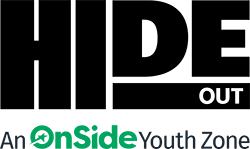Deaf Awareness Week is an annual event used to celebrate the Deaf Community. This year, Deaf Awareness Week 2023 will take place from the 1st to the 7th May.
Deaf Awareness Week aims to bring to light the barriers that people who are Deaf and those with hearing loss face in society.
By educating ourselves on learning key communication tips and recognising the importance of the Deaf Community, together we can take steps to be more inclusive and celebrate diversity.
By learning directly from people’s experiences in the Deaf Community, we show that we care, empathise with, and respect people who are Deaf as valued members of society. Rather than seeing deafness as something that needs to be ‘fixed’, we should make appropriate adaptations to accommodate people who are Deaf and those with hearing loss – many people view deafness as part of their identity, not a disability.
This awareness week is also a great way to spark conversations about being inclusive in the workplace – we’re speaking to Reception and Membership Administrator, Lizge Ak, about her experiences of being part of the Deaf community.
Can you tell us a bit about your hearing loss and how it affects you in your day-to-day life?
I was born with a speech impairment, also known as a cleft palate, and a hearing impairment in both of my ears. Growing up, I constantly had hearing checks, speech therapy and surgeries, and to this day, I still have hearing checks. This led me to be diagnosed with Meniere’s disease. Meniere’s disease causes inner ear problems that causes dizziness (vertigo) and hearing loss. The dizzy episodes can last a small amount of time, or even a day, leaving me feeling dizzy, sick and drained.
One day growing up in my teens, I was told that my hearing had gotten worse, which resulted in a hearing aid in my right ear. Even though I wear this every day, I still struggle with my hearing. When people are speaking, they have to be near me for me to hear them; I can’t hear them at certain distances, and I count a lot on lip reading. I now have hearing checks every 6-9 months as doctors have mentioned that my hearing could potentially get worse.
Why did you decide to do the BSL (British Sign Language) course?
At the time when I wasn’t wearing a hearing aid, it was a big struggle to hear people and I counted a lot on lip reading. When I went to the hospital for speech therapy, they taught me BSL as they weren’t hopeful that my hearing would improve. BSL has not only been helpful for myself but others around me. I know the struggle of not being able to hear people so I wouldn’t want anybody to experience that feeling.
Why do you think it’s important for people to learn BSL?
Having that other form of communication is so important because you never know who you are going to come across. You meet new people every day and just being on reception, I know we have young people who count on that. Not only can I relate, but another form of communication helps the young people when there is that language barrier.
What can we do more as a community?
Take your time speaking and don’t rush, especially for those counting on lip reading, and more importantly, have patience. Personally for me, there’s been a few times where I’ve had to ask people to repeat themselves and I feel like I’m annoying. You don’t want the person to feel like they need to constantly apologise for not being able to hear properly. Also be conscious of surrounding sound. Sometimes a lot of noise becomes overwhelming, for example, music and lots of people speaking at the same time.
Thank you to Liz for sharing your experience! If you’re a parent, guardian or young person who wants to discuss any inclusion related topics, please contact Inclusion Coordinator, Sam Morris: sam.morris@hideoutyouthzone.org
